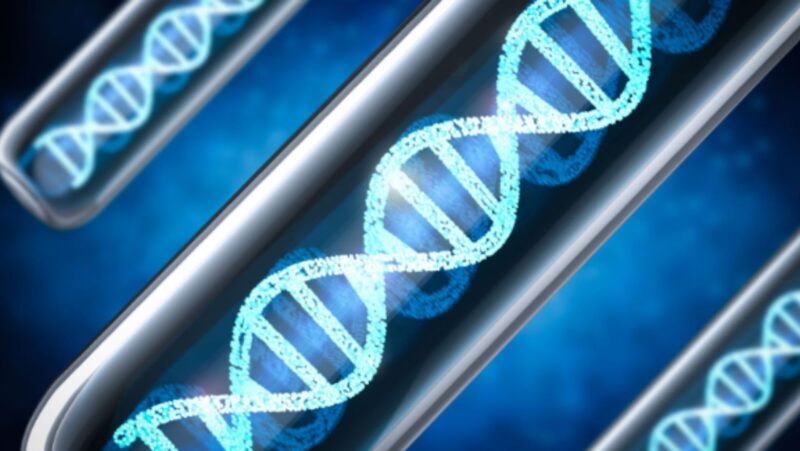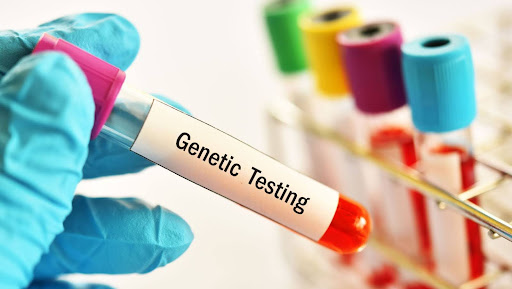The world of medicine is evolving rapidly. Genetic testing has emerged as an informative and resourceful tool, changing how we approach health and wellness.
This blog post explains the intersection of medicine and genetic testing. We’ll explore how these fields are merging to revolutionize healthcare, focusing on the growing trend of genetic testing at home.
The Rise of Genetic Testing
Genetic testing has come a long way. It’s no longer confined to laboratories and hospitals. Today, individuals can access genetic information from the comfort of their homes. This shift has democratized health information. It’s empowering people to take charge of their well-being.
Home genetic testing kits are now readily available in offline and online stores. They offer insights into various aspects of health from lab test interpretation —these range from ancestry to disease risk factors. The convenience and accessibility of these tests are driving their popularity.
Understanding Genetic Testing
What exactly is genetic testing? It’s the analysis of DNA. This analysis can reveal changes in genes, chromosomes, or proteins, indicating inherited disorders or diseases. Genetic tests can confirm or rule out suspected genetic conditions. They can also help analyze a person’s chance of carrying a genetic condition across generations.
Types of Genetic Tests
There are several types of genetic tests. Each serves a different purpose:
- Diagnostic testing: Identifies specific genetic conditions.
- Predictive testing: Determines the risk of developing certain diseases.
- Carrier testing: Reveals if a person carries a gene for an inherited disorder.
- Pharmacogenomic testing: Helps determine the best medications based on genetic makeup.
- Prenatal testing: Detects genetic changes in a fetus.
- Newborn screening: Identifies genetic disorders early in life.
The Process of Genetic Testing at Home
Home genetic testing has simplified the process. Here’s how it typically works:
- Order a kit online.
- Collect a DNA sample (usually a cheek swab).
- Then, the samples should be sent for further analysis.
- Receive results electronically.
The ease of this process has made genetic testing more accessible than ever. Companies like 3X4 Genetics have further streamlined this process, offering comprehensive genetic testing services that provide detailed insights into various aspects of health and wellness.
These advanced tests go beyond basic genetic information, offering a more holistic view of an individual’s genes and their potential impact on health. With such services, individuals can better understand their genetic predispositions and work with healthcare professionals to develop personalized health strategies.
Benefits of Genetic Testing at Home
Home genetic testing offers numerous benefits:
- Convenience: No need for doctor’s appointments or lab visits.
- Privacy: Results are confidential and accessed privately.
- Empowerment: Individuals gain knowledge about their genetic makeup.
- Early detection: Potential health risks can be identified early.
- Personalized health plans: Information can guide lifestyle choices.
Genetic Testing and Personalized Medical Care
Genetic testing is paving the way for personalized medicinal care. This approach tailors medical treatment to individual characteristics, considering a person’s genetic profile, environment, and lifestyle. The result is more effective and targeted healthcare.
Some companies offer comprehensive genetic testing services. These tests provide detailed insights into an individual’s genetic makeup. The results can inform personalized health strategies. They can guide decisions about diet, exercise, and preventive care. This approach inspires individuals to take necessary steps towards better health.
The Role of Healthcare Professionals
Despite the rise of home genetic testing, healthcare professionals remain crucial. They play a vital role in interpreting results. They can provide context and guidance. Many genetic testing companies offer consultations with genetic counselors. These experts can help individuals understand their results.
Some advanced genetic testing services go beyond essential health insights.

They offer comprehensive genetic analyses. These tests can provide detailed information about various health aspects, including nutrient needs, fitness potential, and even cognitive function. Such in-depth analyses can be particularly valuable when interpreted by healthcare professionals.
Genetic Testing and Disease Prevention
One of the most significant impacts of genetic testing is in disease prevention. By identifying genetic risk factors, individuals can take preventive measures. This approach can reduce the probability of developing certain conditions.

For example, if a genetic test reveals any risk of heart disease, an individual can:
- Adopt a heart-healthy diet
- Increase physical activity
- Monitor cholesterol levels more closely
- Work with their doctor on preventive strategies
This futuristic approach can lead to better health outcomes in the future and reduced healthcare costs after that.
Genetic Testing and Nutrition
Genetic testing is revolutionizing the field of nutrition. It’s giving rise to nutrigenomics – the study of how genes interact with nutrients. This field helps determine how a person’s genetic makeup influences their response to different nutrition.
Some advanced genetic tests provide insights into the following:
- Nutrient metabolism
- Food sensitivities
- Optimal diet type
- Vitamin and mineral needs
With this information, individuals can alter their diets to their genetic profiles. This personalized approach to nutrition can lead to improved health and well-being.
Genetic Testing and Fitness
Genetic testing is also making waves in the fitness world. It can provide insights into:
- Muscle fiber composition
- Recovery time
- Injury risk
- Endurance capacity
This information allows individuals to optimize their workout routines. They can choose routines that align with their genetic predispositions, leading to more effective and enjoyable fitness regimens.
Some comprehensive genetic testing services offer detailed fitness profiles. These profiles can guide individuals in creating personalized exercise plans. They can help maximize results and minimize the risk of injury.
Genetic Testing and Mental Health
Genetic testing also sheds light on mental health. It can provide insights into:
- Predisposition to specific mental health conditions
- Likelihood of addiction
- Stress response
- Sleep patterns
This information can be valuable for mental health professionals. It can guide treatment plans and preventive strategies.
Some advanced genetic testing services include mental health components in their analyses. These can give individuals a more holistic view of their health, encompassing physical and mental aspects.
Genetic Testing and Aging
Genetic testing is providing new insights into the aging process. It can reveal information about:
- Cellular aging
- Longevity genes
- Age-related disease risks
This knowledge can help individuals decide about lifestyle choices and improve them accordingly. It can guide strategies for healthy aging.
Specific comprehensive genetic tests offer insights into factors affecting longevity. These can help individuals develop personalized anti-aging strategies.
The Global Impact of Genetic Testing
The rise of genetic testing at home is having a global impact. It’s democratizing access to genetic information. This has implications for:
- Public health strategies
- Medical research
- Drug development
- Healthcare policies
As more people access their genetic information, it could significantly shift how we approach health globally.
The Future of Genetic Testing
Genetic testing is evolving constantly, with new research surfacing almost every day. Future developments may include:
- More comprehensive tests
- Faster results
- Increased accuracy
- Integration with wearable devices
- AI-powered interpretation of results
As technology advances, genetic testing will likely become even more accessible and informative.
Final Note
The intersection of medicine and genetic testing is a rapidly evolving field. Home genetic testing has made this powerful tool accessible to many. It’s empowering individuals to take charge of their health in unprecedented ways.
However, it’s vital to approach genetic testing with caution. Understanding that this research field is still new and has a few limitations and ethical considerations is crucial. Genetic information is robust but just one piece of the health puzzle.
The future of medicine is personalized, proactive, and increasingly based on genetic insights. As individuals, we can be at the forefront of this revolution. Our genetic coding tells us a lot about our future health condition.
Remember, genetic testing is a tool, not a crystal ball. It provides probabilities, not certainties. It’s most potent when used in conjunction with other health information and under healthcare professionals’ guidance.

